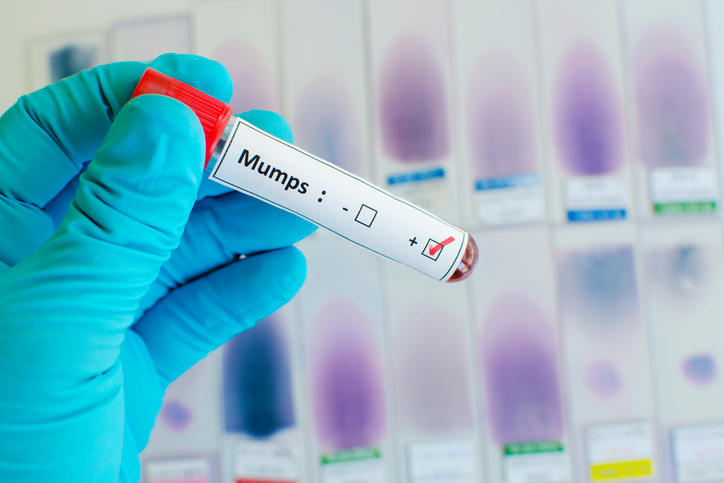Mumps have made headlines recently as the acute viral illness spreads across the country and densely populated areas, like college campuses.
Do we need to worry about mumps here in Northern Kentucky?
According to Michele Wilbers, an infection preventionist with St. Elizabeth Healthcare, there has been only one reported mumps case in the Northern Kentucky area in 2017.*
But, you can never be too careful. It’s important to know the signs and symptoms and take steps to protect you and your family, in case an outbreak does occur in the Tri-State.
How do the mumps spread?
Mumps spreads through saliva or mucus from the mouth, nose or throat. An infected person can spread the virus by:
- Coughing, sneezing or talking
- Sharing items, such as cups or eating utensils
- Touching objects or surfaces with unwashed hands that are then touched by others.
Mumps is best known for the puffy cheeks and swollen jaw that it causes, but transmission may occur before the salivary glands begin to swell and up to five days after the swelling begins. Symptoms typically appear 16-18 days after infection.
Here are a few other symptoms to watch for:
- Fever
- Headache
- Muscle aches
- Tiredness
- Loss of appetite
- Swollen and tender salivary gland/s
Vaccination is the best way to prevent the mumps, says Wilbers.
The MMR vaccine, which stands for “measles, mumps and rubella,” will prevent most cases of the mumps and currently protects against the strains that are circulating now.
Outbreaks still may occur in highly-vaccinated U.S. communities, particularly in close-contact settings. “That’s why we’re seeing the outbreaks in recent years at schools and colleges,” said Wilbers.
Prevent an outbreak from affecting your family
Other ways to prevent the spread of mumps include:
- Washing your hands (hand hygiene)
- Staying home when you are ill
- Avoid sharing drinks or eating utensils
- Disinfecting frequently touched surfaces; for example, toys, door knobs, TV remotes, light switches
If you think you or someone you know may have the mumps, contact your doctor immediately.
*This does not include cases reported in Ohio.

